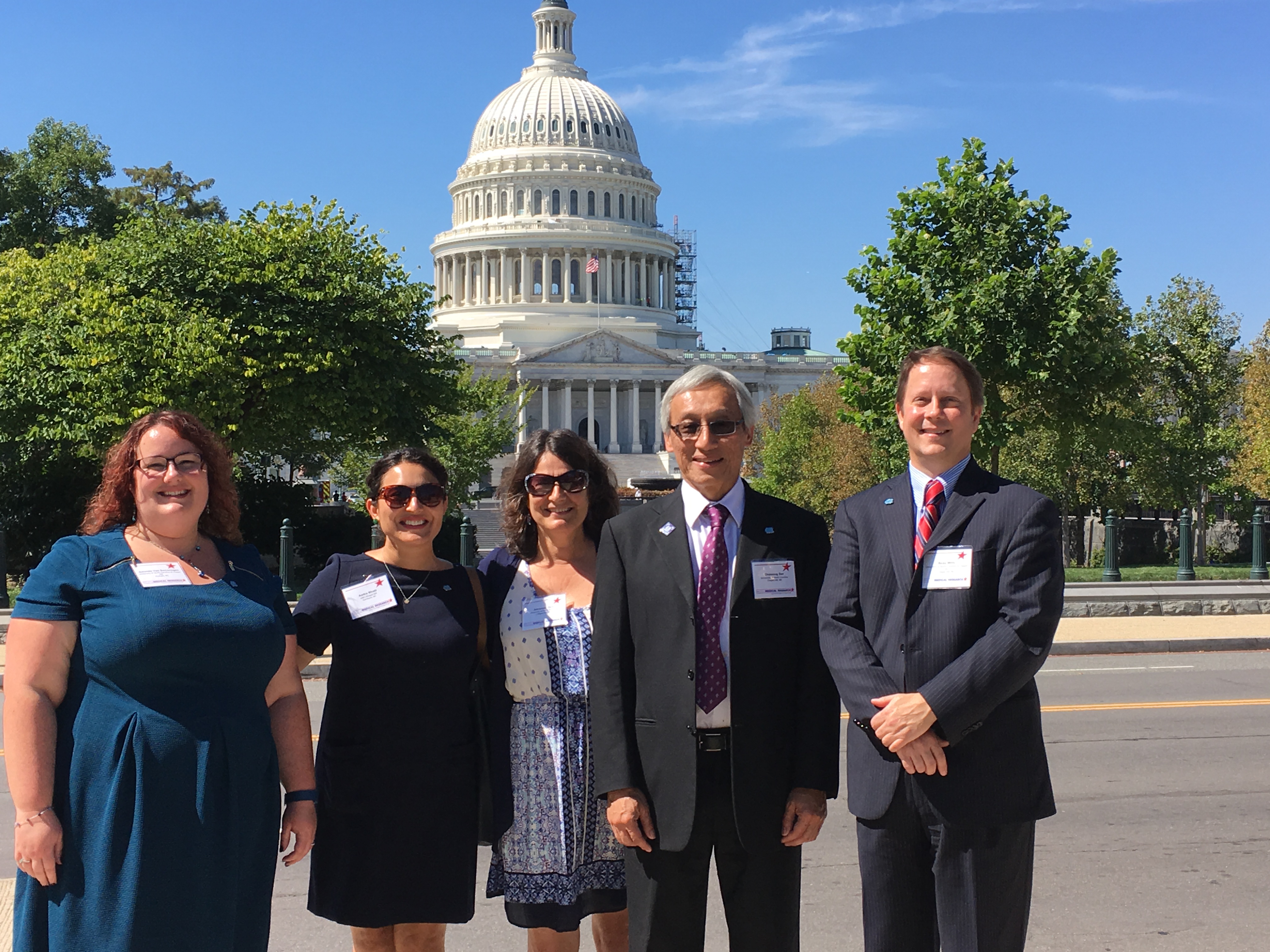American Association for Cancer Research, which is advocating for a $2 billion increase to the National Institutes of Health budget, expects more than 300 scientists, health professionals and patient advocates to be at this year’s Rally for Medical Research in Washington, D.C.

Several UNC Lineberger Comprehensive Cancer Center faculty and trainees were in Washington D.C. Thursday as part of as the Rally for Medical Research, a national campaign that advocates for sustained and strong federal funding for medical research.
The American Association for Cancer Research founded the annual event in 2013. AACR expected more than 300 scientists, health professionals and patient advocates to be at this year’s rally.
Organization leaders are advocating for a $2 billion increase to the National Institutes of Health budget for the upcoming fiscal year, as opposed to a potential move that would hold federal funding in-place from the current year’s levels. The increase would boost NIH funding by the same increase that the agency saw in the current fiscal year.
“We are still below where NIH funding should be – historically and practically,” said Amanda Van Swearingen, PhD, a UNC Lineberger postdoctoral research associate who studies drug strategies to treat breast cancer once it has spread to the brain.
Van Swearingen traveled to Washington with fellow UNC Lineberger trainee Aadra Bhatt, PhD. UNC Lineberger members Channing Der, PhD, Kenan Distinguished Professor in the UNC Department of Pharmacology, and Adrienne Cox, PhD, an associate professor in the UNC School of Medicine Department of Radiation Oncology, also participated in the event.
Der and Cox attended meeting as part of the Pancreatic Cancer Action Network, an organization that funds research to drive new treatment approaches for pancreatic cancer.
Van Swearingen said funding has been difficult to come by from any source to help bring preclinical studies of promising treatment options for breast cancer brain metastasis into the clinic.
She advocated for increased funding from the NIH to help support senior researchers as well as postdoctoral researchers like herself who act as a main support system for many laboratories– conducting and leading research, helping with grant and article writing, managing day to day logistics as well as helping to train more junior scientists.
“A lot of labs don’t have enough funding for senior research positions, meaning most postdocs have to go elsewhere,” Van Swearingen said. “Increased funding from NIH, in particular to provide salary support for senior researchers, would not only create job options for postdocs but also greatly benefit research as a whole.”
She also emphasized the need for support for young investigators who are struggling to get sufficient funding to maintain research. Without support, “great ideas and promising medical research is being delayed, if not outright stopped.”
The researchers and trainees, in addition to attending the rally, were scheduled to met with North Carolina representatives and senators, or their staff members, as well as leaders from other states.
